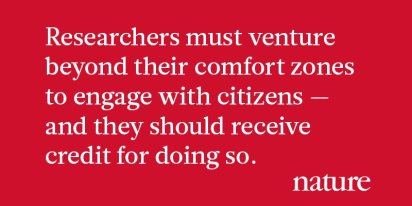A day of politics at Nature
I’ve commented previously on Nature’s ill-advised forays into political advocacy, as have others. It’s not a very new phenomenon — this piece dates from 2007.
On Wednesday this week, January 4th, the former science magazine and its spin-offs surpassed themselves with no less that three political articles on the same day (HT Barry Woods and Roger Pielke sr).
Why researchers should resolve to engage in 2017 is an anonymous editorial calling for scientists to engage in political activism. Bizarrely, it starts with a quote about science never being settled as if this is something that we ought to be challenging. It complains about “US think tanks that support free markets and reduced government”. It cites approvingly a paper by the notorious McCright and Dunlap, one of several by those authors whose only purpose is to create division and smear the “conservative movement”, or “one’s opponents” as the article helpfully puts it, just in case their might be any doubt about the politics of the author. It goes on to encourage “researchers to write to their political representatives”. It was Nature’s citation of so-called Skeptical Science as “an international group of technically minded individuals” that prompted both the Pielkes to draw attention to it:
https://twitter.com/RogerPielkeJr/status/816780112658100224
Under the editorial you may see the words Commenting is currently unavailable. This is untrue — if you register with Nature you can see and submit comments. There is a comment from Deborah Castleman that says:
I’ve been thinking about this post since I read it this morning… and I hardly know where to start in trying to articulate just how wrong-headed this approach is. Advocating for certain policy positions is advocacy, period. It is not science. Worse, because of this, “science” as an institution is losing credibility. It certainly has with me.
Well done Deborah, whoever you are. You have a better understanding of this issue than Nature Editor-in-Chief Philip Campbell or whoever it was who wrote the editorial.
Next, we have Scientists should not resign themselves to Brexit by ex-Nature-editor . Again we have a call to action: “Instead, researchers, together with other groups threatened by Brexit, should fight to keep a foothold in the European Union.” There is also the unsubstantiated opinion stated as if it were a fact: “the mood in science departments is universally grim” — well, that’s not the case in my department, where people were surprised and a bit shocked but carry on pretty much as before.
Perhaps the most offensive comment from Macilwain is this: “But the loose coalition of dissenters, doubters and right-wing jackals who voted to leave Europe can still be broken up”. With a lack of self-awareness that is typical of the authoritarian elite, he seems to have forgotten that at the start of his article he accused others of arrogance. The article ends with another use of the m-word so beloved by these people: “The scientific community may be close to despair right now. But it must not take this rout lying down.”
Thirdly, in Nature Climate Change, there is Politics of climate change belief, which starts off with “Earlier this year, Donald Trump appointed Myron Ebell, a known climate science denier…”. Most of the rest of the article is not so bad — it says that support for policies such as renewable energy is not necessarily determined by one’s view on climate science. But again it ends with a call to action, to convince people to adopt “pro-climate” behaviour.
Finally, a bit of positive news. UEA climate scientist Phil Williamson wrote a complaint to the Independent Press Standards Organisation (IPSO) regarding James Delingpole’s article Ocean acidification: yet another wobbly pillar of climate alarmism in the Spectator. Nature gave Williamson a platform for his whining in December, in which he said “it would be a defeat of rationality and science if my complaint to IPSO is dismissed as a matter of opinion, rather than fact.” Well, IPSO has now issued the ruling, the result being that there was no breach of their code. They say that “[t]he article was clearly a comment piece” and that the committee “did not establish that the article contained any significant inaccuracies or misleading statements.”
You’d think they might have learnt that UEA climate profs called Phil complaining about climate sceptics isn’t a wise move.
